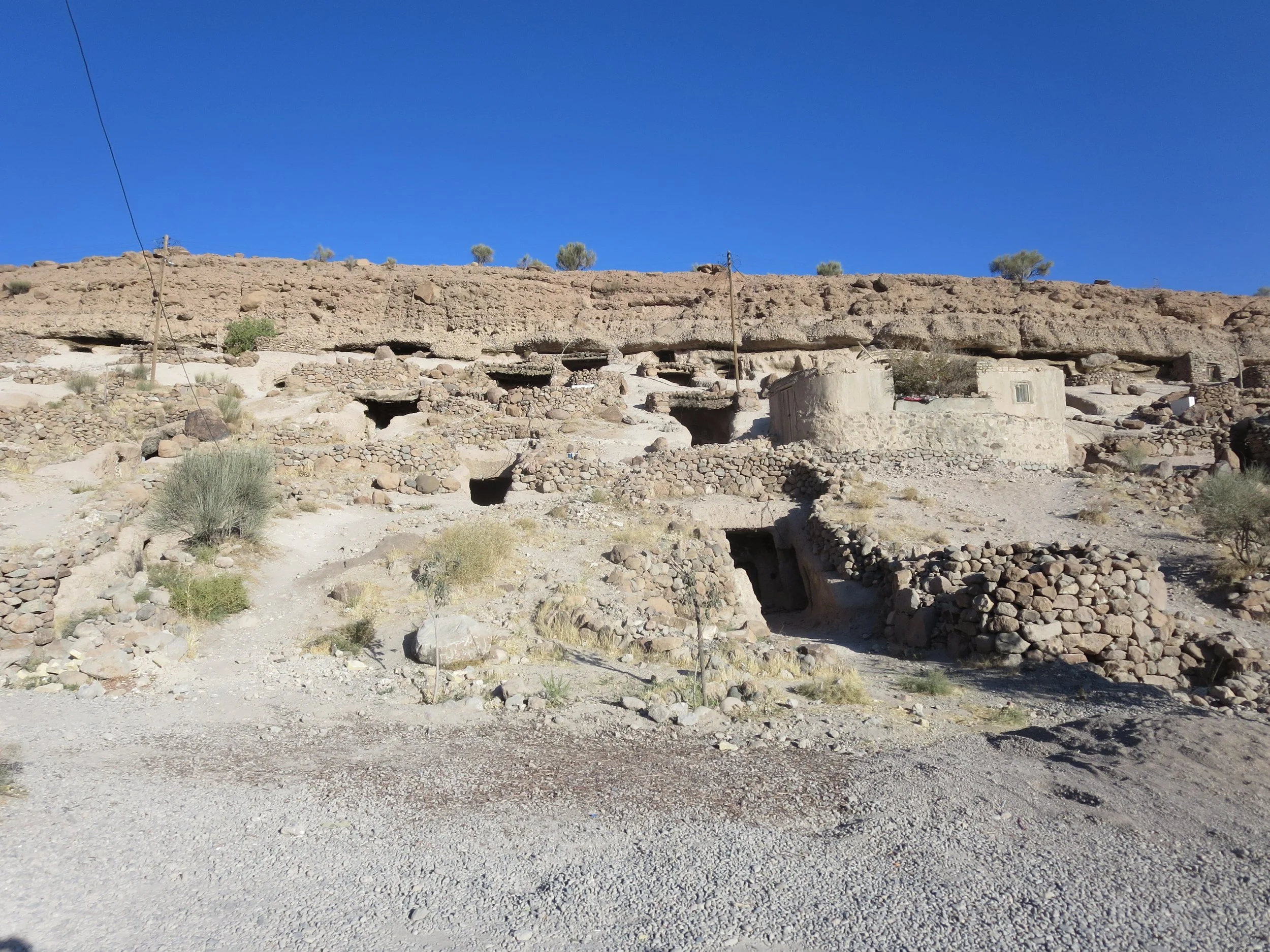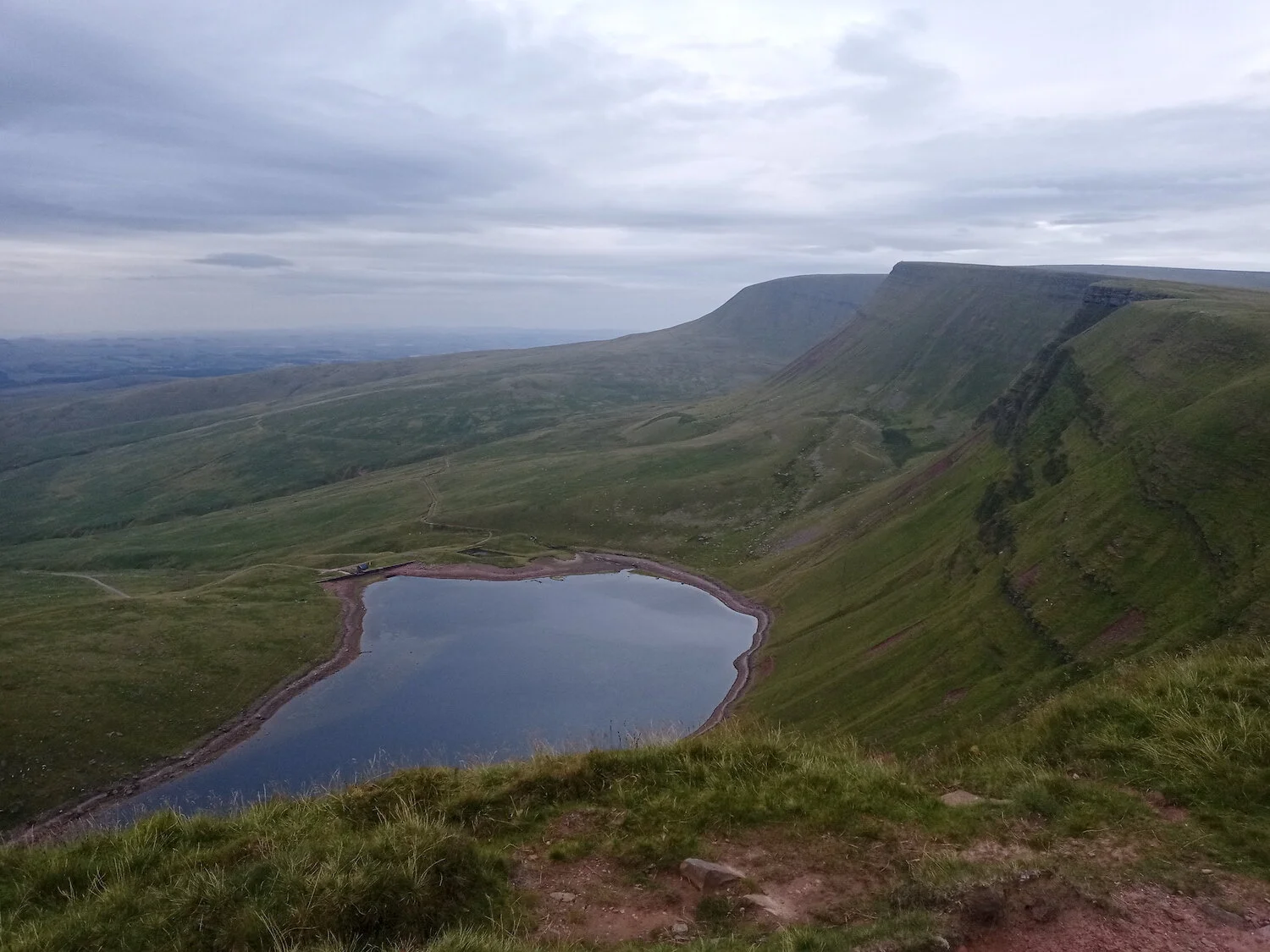Pyrenean Wild Life
By Richard Collins
The camera frames the landscape around us: long dusty roads and green mountains all around us. We look through the lens, then back at the real thing, the real world around us. The two views are not the same. The camera doesn’t capture what we’re looking at, not really. It doesn’t have the same magnitude, the same authenticity. It’s just a representation.
We’re on a walk, Jess and I, in the Pyrenees, and we’ve just stopped to take a drink and sit down.
We’re sitting, contemplative and quiet, and I hear, behind a tree, footsteps among leaves, and then Jess hears it too, and we look at each other.
I get up and look around the corner of the tree, seeing nothing, about to turn back, when I hear another shuffle and then I see it, I see it emerge from behind a tree.
It's a horned creature. Twenty feet away from me. An antelope, or a goat, or something, something hoofed and large, with narrow, serene eyes and with a little white beard, and it’s large, and it’s standing there and it’s looking right at me, and I’m looking right back at it, and we’re both still, and everything’s quiet.
And then I say, in just above a whisper, something like, “Wow.”
And then Jess says something back, and the creature is still standing there, looking, and we’re there, me and the creature, just looking at each other, in this quiet little moment, and everything is perfect, and then a bird squawks, and the creature dashes and runs away, and then Jess emerges and asks what was it, and I tell her an antelope or a goat or something, and she asks where it went, and I say it ran away, and she’s somewhere been skeptical and jealous.
Then I think about how no one else will ever know that moment, that exact moment, between me and the beast. I could tell people, but they wouldn’t know, they might not even believe me, they would probably ask to see a picture, and I did not take one. This was a moment I did not capture. There’s no evidence of it beyond my memory.
This is something I’ve been thinking about on this trip: the way now people have experiences not to just have them, but to document them. Every experience has this dual quality; on one side there’s the experience, on the other there’s the sharing of the experience, which itself becomes an experience, and in the sharing, the original experience gets curated and polished, and then after a while the edited experience becomes real.
And there’s a paradoxical question underneath it: should you fully immerse yourself in the moments you experience, or should you stand slightly back, from a safer, more removed vantage point, capturing the finer details. It seems pretty much all experiences are now lived with this tension. Everyone wants to live their “best lives”, and not just to do that but to be seen doing that, but the pressure to make that happen takes away from the enjoyment of any experience, and perhaps people would be happier if they let themselves be unhappy once in a while. There’s a paradox in that as well, of course.
You can see it from both sides.
If you just live your experiences, are you living them to a fuller extent than if you’re documenting them? Should you forget all about how the experience will be shared and perceived and just go for it? Or, if you’re just letting experiences pass you by without stopping to think about them, to reflect on them, process and share them, are you letting some of the details go? Is the unexamined life really not worth living? Are you even really examining your life if you seek to have moments just to capture them? Or are you missing a big opportunity every time you have an experience but don’t do anything to preserve it?
Anyway, now, the creature is gone, only to live in my mind, and we get up again, walk on, hoping to see the animal again, whatever it was. (When we get back we’ll Google it and find out it was a Pyrenean Wild Ibex). We keep going up a path until we get to a plateau, upon which lie some giant rocks, and on the rocks someone has painted an arrow, pointing up. The arrow is telling us to climb up this rock and see what’s there.
Jess goes first, planting her feet in the wedges between the rocks and climbing up, and when she’s up she just stands there, staring, and then it’s her turn to say, “Wow”, and now she’s standing there looking out and I can see from her posture and the way her head is panning that whatever she’s looking at is something remarkable, and then I’m following her, I’m clambering up the rocks too, and then I’m up there with her, and for the first time since we’ve been on these mountains our view is completely unobstructed, we’re high up enough to see out and see everything, and it’s a view quite unlike anything I’ve seen before, it’s pure mountain range, pure mother earth, craggy rock faces and green trees, a big, kind and loving sky covering it all, it’s mountains as far as we can see, and we can pretty much see the horizon, and I mean the real horizon, the curvature of the earth, and there’s not a hint of a town or settlement anywhere, it’s just land, pure land and sky.
We stand there for something like twenty minutes, just staring, breathing, our imaginations captured. Jess takes several pictures. She shows me how they turn out on the camera; they don’t come anywhere near capturing the depth or breadth of what we’re looking at. The image on her screen bares no relationship to what we’re seeing all around us.
Richard grew up in a small rural village in Wales. He's the author of short stories, travel articles, a radio series, and is about to finish a novel. When he's not writing, he teaches Sports Media at boomsatsuma. He lives in Bristol.
Photo by Frédéric Perez @fredericp





